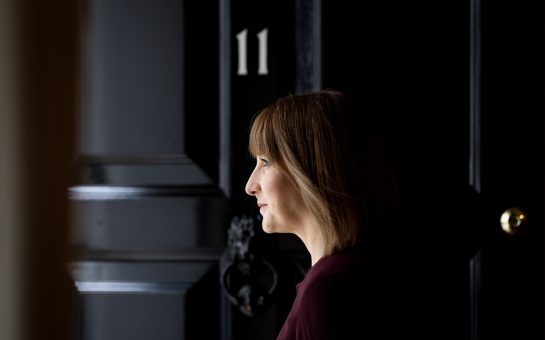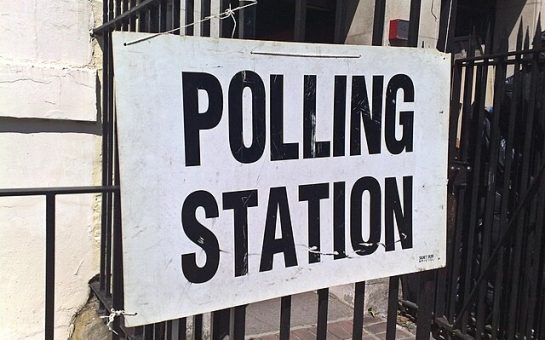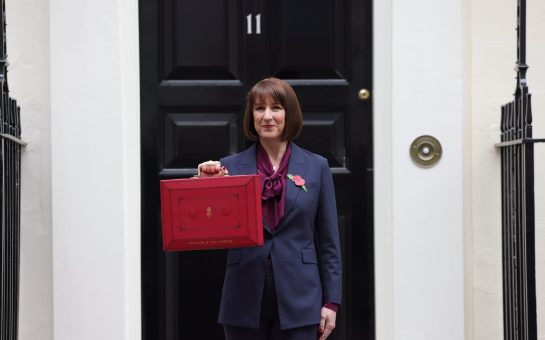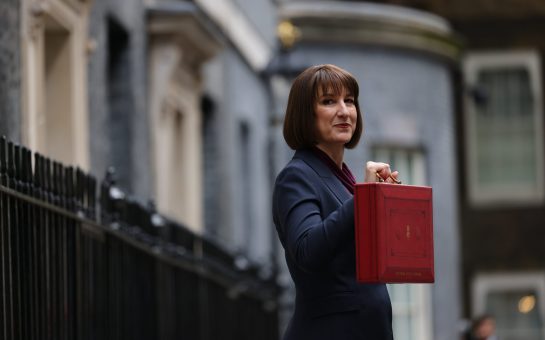After Boris Johnson and Jeremy Corbyn faced off on Tuesday night, the Liberal Democrats, SNP, Brexit Party and Greens were given airtime to speak to the nation.
Here MM run you through the highlights of the interviews with Lib Dem leader Jo Swinson, SNP head Nicola Sturgeon, Brexit Party chief Nigel Farage and Green Party co-leader Sian Berry.
Jo Swinson (by Richard Baker)
The Liberal Democrat leader, shepherding her party through an election for the first time in her career, cut a confident and compassionate figure in last night’s ITV Interviews.
The programme soon felt like a rejection pit for the rest of the leaders who were cut from the Johnson-Corbyn debate, not deemed to lead big enough parties to be promoted to the top billing at ITV.
She promised a “brighter future” if British voters could rid themselves of Brexit and vote her Lib Dem party into government. If the electorate were to do such a thing then the UK could tackle the other talking points of this debate to “improve people’s lives”.
Swinson soon brought up her parties plans to tend to the other, non EU, shaped ailments in Britain. Polices such as free childcare, a skills money pot as well as tackling the climate emergency. All these policies wrapped up in her “Remain Bonus”.
Swinson stated “our economy is unfair”, yet has publically rejected working with Labour, whose chancellor has pledged to “rewrite the rules of the economy”.
On the debate over the main two characters in this political pantomime, she said that Johnson and Corbyn were “unfit” to be PM, merely “squabbling” over the EU question.
She pleaded to rid Britain of the two-party system, stating “our country deserves better” in an effort to discourage voters away from the “two tired old parties”.
Swinson may be the only politician who answered a straight “yes” to a question during televised political debate, only this answer was in response to being asked whether she would use nuclear weapons.
Swinson came across genuinely concerned with Britain’s current problems and offered manicured solutions to such problems. Less the emotionless façade of the 21st century politician and more a concerned high school teacher at parents evening trying to convince her student that they’re capable and deserving of more.
Nicola Sturgeon (by Sean Byrne)
As expected, Nicola Sturgeon’s interview focused heavily on the SNP fighting for Scotland’s voice and fighting for yet another independence referendum.
Sturgeon highlighted how a vote for the SNP would help ‘deprive Boris of the majority’, whilst also insisting that a vote for the SNP would allow Scotland to choose their own future.
Described by Piers Morgan as ‘the most natural leader in British politics’ following the interview, Sturgeon evidently conducted herself well and gave clear and direct answers to every question she faced.
The phrase of ‘deciding for ourselves’ was repeated throughout as it became clear where the majority of her supporters would be coming from – Scottish residents that want independence.
She also made it very clear that under a Conservative majority government this would be much harder to achieve.
Elsewhere, Sturgeon discussed potential scenarios for if Scotland did achieve their independence, such as whether or not they would take the euro as currency.
“No, I don’t think they would,” was her simple response, giving examples of how Sweden also refused to take the euro when re-joining the EU independently.
Finally, when asked the question on who she would want joining her in the I’m a Celeb jungle, she answered Boris Johnson and Nigel Farage, but not for good reasons. She said with a sinister smile that she would enjoy seeing them struggle through all the gory tasks and challenges.
Nigel Farage (by Ben Parsons)
Brexit Party leader Nigel Farage was in buoyant mood during his ITV interview ahead of the December 12 general election.
Unsurprisingly, the prime focus of the interview concerned Britain’s departure from the European Union. Farage reiterated his desire to deliver 2016’s referendum result, and to do so “properly.”
The former UKIP leader maintained his stance that Brexit will happen in 2020, but also took a dig at Boris Johnson by saying he “doesn’t always deliver on his promises.”
He again stressed post-Brexit Britain will be a free and liberated place.
Farage also revealed US President and ‘good friend’ Donald Trump is a Brexiteer.
When discussing other reasons why people should vote for the Brexit party rather than to make sure Brexit is delivered, Farage claimed he wanted to modernise British politics.
Farage wants to bring politics and democracy “into the 21st century” by giving the British public more democratic power.
Interestingly, Farage said he would give people more opportunities for people to call for referendums, but could not identify which issues people would be voted for when quizzed by the ITV interviewer.
The ITV Election Debate is happening on December 1, with representatives of seven political parties taking part.
For details of how you can put your question to them, visit: https://t.co/Nhg3wkw3dm pic.twitter.com/u7HhPRiUo4— ITV News Politics (@ITVNewsPolitics) November 20, 2019
Siân Berry (by Elise Brighouse)
Being the co-leader of the Green Party, Siân Berry’s interview focused largely around the issue of climate change.
The Green Party has been advocating for measures to solve climate change for thirty years, and in response to the other parties beginning to catch up on these measures, Berry made it very clear that – in her opinion – they were not doing enough.
She called out Labour for backing down on their 2030 target, the Conservatives for staying strong on their 2050 target and criticised that the issue of climate change was only brought up in the quickfire round of the Johnson vs Corbyn debate.
Berry believes that the British people want climate issues to be resolved and praised the young people who have been taking part in climate strikes for the past few months for their resolve, but she may have been the only politician to correctly say that the issue of climate change is not one that can be left to the future generation.
It has to be solved now, and she backed this up with the suggested 2030 deadline from climate scientists before possible climate collapse.
A main part of Berry’s interview was her pledge to improve the lives of the British people by solving climate issues.
She pledged to put £100 billion a year into investments to do with climate, especially into homes, as she believes that many British people live in cold, damp homes that are difficult to heat.
Berry and the Green Party, like many of the opposition parties, strongly support remaining in the EU. She likened the election to a choice between a “Trump inspired, Farage enabled, Tory Brexit” and the opposition parties fighting against that.
Further, the Green Party are supporting the Lib Dems, who pledge to revoke Brexit on day one, by not running candidates in some seats.
Berry supported transport reform, claiming that focus now needs to be on public transport rather than developing roads as the Conservatives have done.
She has a huge belief in transforming the country and pulling it together, suggesting that the borrowing of such a high amount, much of the £100 billion, is a good investment to make to improve the country.
Berry appeared to have a deep-rooted faith in her ideas for the country and the environment and didn’t back down from her suggestions, focusing on improving the lives of the British people by combating the climate crisis and remaining in the EU.
Image courtesy of ITV News via Twitter, with thanks.



